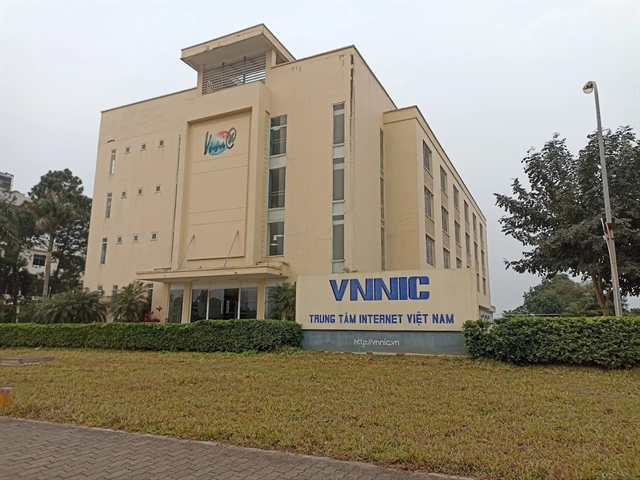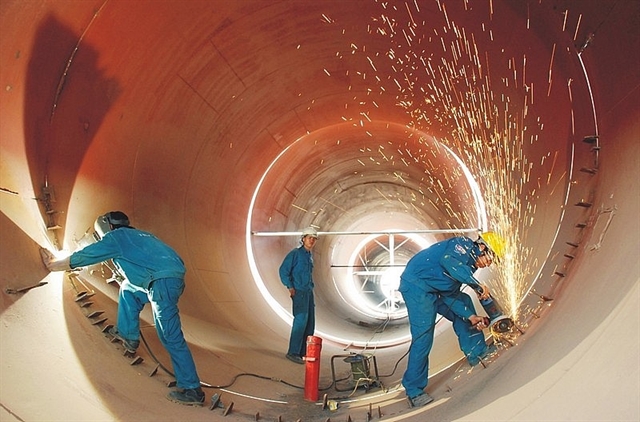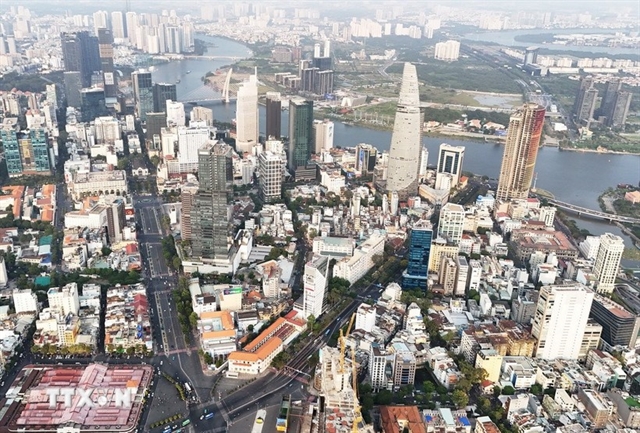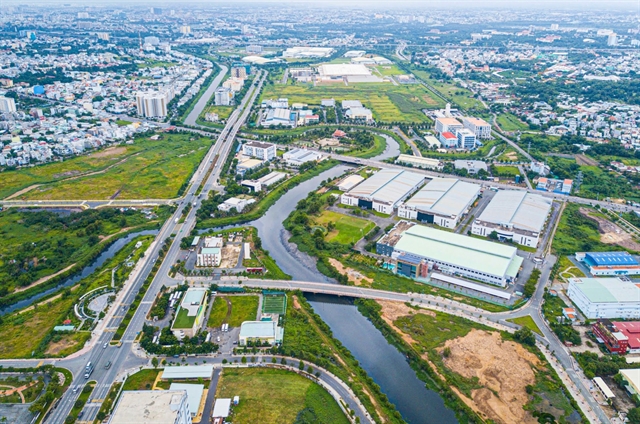 Economy
Economy

 |
| The domestic mechanical market has seen orders decrease by about 20 per cent, while some businesses see reductions by 30 per cent to 40 per cent. — Photo congthuong.vn |
HÀ NỘI — Domestic mechanical enterprises have proposed that the State strengthen mechanisms and policies on developing the market for the mechanical industry.
Lê Văn Tuấn, general director of the Việt Nam Construction and Machinery Installation Corp (Lilama) and vice chairman of Vietnam Association of Mechanical Industry (VAMI), said the domestic mechanical industry has recently lacked a fundamental factor being the market. There must be a market to get jobs and innovation. The market factor greatly determines the development of the mechanical industry.
To have a market for the mechanical industry, Tuấn has suggested that the State needs to have a separate mechanism for the industry. Specifically, policies to encourage the use of domestically-made mechanical products are needed. Việt Nam should import only products that are not able to be produced at home. That will help the domestic mechanical industry have a market for development.
Many businesses have proposed that it is necessary to create good conditions for businesses in terms of finance, technology, development of human resources, trade promotion, and connection between supply and demand.
Deputy Minister of Industry and Trade Đỗ Thắng Hải said that the mechanical sector is one of the industries acting as a driver for economic growth.
The ministry with State management responsibility for the mechanical industry has proposed that the Government promulgate many important policies and strategies to develop the industry.
It has also synchronously implemented many measures to support domestic production and business, diversify supply sources, enhance trade promotion and expand markets.
At the same time, it has coordinated with ministries, branches and localities to support mechanical enterprises in responding to trade barriers and trade defence measures to develop the domestic mechanical industry.
Đào Phan Long, former VAMI chairman, said it is forecast that the mechanical industry will continue to face difficulties, including reduced market demand due to lower consumption in the unstable international political situation.
Additionally, the devaluation of many strong currencies has led to price increases of raw materials and services, reducing production.
Đinh Hồng Quân, standing vice chairman of the Association of Mechanical Enterprises of Bắc Giang Province, said that Bắc Giang's mechanical industry has manufactured advanced equipment in many plants such as hydropower, wind power and garbage incinerators. However, most businesses are small scale and lack connection.
Therefore, his association recommends that the ministry creates favourable conditions for the businesses to participate in trade promotion programmes. Along with that, the State should have a policy to require FDI enterprises to increase the localisation rate for mechanical products.
Trương Thị Chí Bình, vice chairwoman and general secretary of the Vietnam Supporting Industry Association, said that mechanical products are very diverse, so Vietnamese trade counsellors abroad need to provide more information about the market and customers for local enterprises. This is also an opportunity for domestic mechanical enterprises to improve production ability.
Vietnamese mechanical enterprises have never faced difficulties as they do now; they do not have consumption because domestic public investment is extremely stagnant.
Mechanical enterprises do not enjoy any incentives in terms of loans, land lease or export tax, while the mechanical industry needs large and long-term capital investment, and large factories.
Therefore, VAMI would propose to adjust the mechanical development strategy for the new development period and develop key mechanical products. The association also suggests the State issue mechanisms and policies that the mechanical industry can provide services, machinery and equipment for key national projects.
Besides, it will strengthen the connection among businesses in the association to have proposals on mechanisms and policies and to remove difficulties for them.
VAMI will also focus on proposing to the Government mechanisms and policies to increase localisation in products for projects in fields such as wind power, gas power, railway, airports and seaports, and agricultural machines.
The association will propose a localisation roadmap with the participation of domestic mechanical enterprises to help them improve their capacity, creating momentum for exports.
Meanwhile, the ministry requests VAMI to further strengthen coordination with the Government and localities in building and completing important strategies and policies to develop the industry.
They include to adjust the Vietnam Mechanical Industry Development Strategy; preferential policies on taxes, land and credit for mechanical enterprises; and policies for market development and industry localisation.
In addition, VAMI needs to coordinate with the Government to build a mechanism to develop and attract high-quality human resources for the mechanical industry; and promote cooperation between the businesses and vocational training facilities.
The enterprises should also continue to strengthen information connection among them to avoid overlapping investments and unfair competition.
According to VASI, the domestic mechanical market has seen orders decrease by about 20 per cent, while some businesses see reduction by 30 per cent to 40 per cent.
In recent years, the domestic mechanical industry has been heavily affected by the global COVID-19 pandemic, so the market has reduced consumption, while the industry faces increased raw material prices and supply chain disruption.
The US-China trade war and the prolonged Russia-Ukraine conflict have also increased difficulties for the businesses.
Many businesses are struggling to survive, so they could not access new technology and pay attention to digital transformation.
The Government has introduced supports in technological innovation, capital, supporting industry development, import tax exemption and reduction, but many domestic enterprises, especially mechanical businesses, still have difficulty accessing them. — VNS




